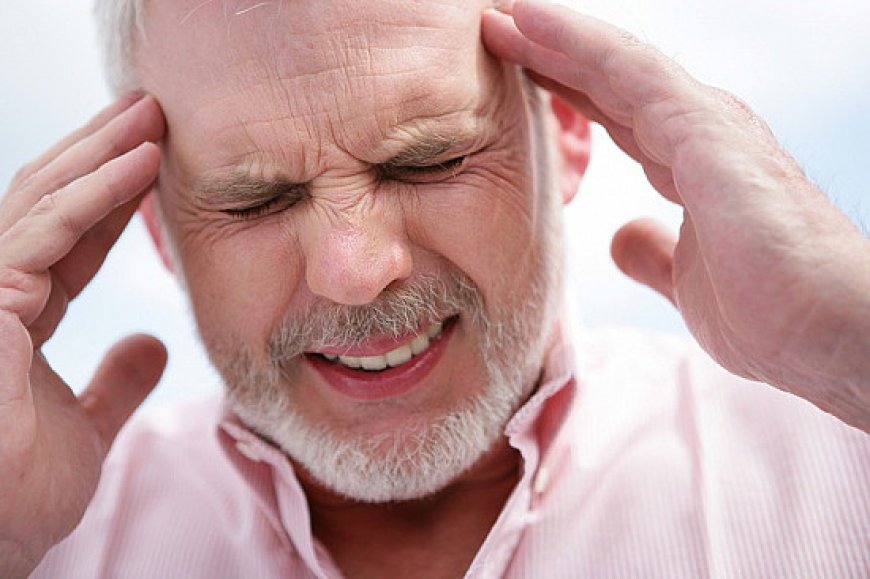"The Link Between Dehydration And Headaches: What You Need To Know"
Discover practical tips and strategies to stay hydrated and prevent dehydration headaches, ensuring optimal health and well-being. ("The Link Between Dehydration And Headaches: What You Need To Know")
Headaches are a common ailment experienced by people of all ages and backgrounds. Among the myriad of headache types, dehydration headache stands out as one that is often preventable yet frequently overlooked. This comprehensive guide will delve into the intricacies of dehydration headaches, exploring their causes, symptoms, prevention strategies, and effective remedies.
Understanding Dehydration Headaches
Dehydration headaches occur when the body loses more fluids than it takes in, leading to a state of dehydration. The brain, which is comprised of approximately 75% water, is particularly sensitive to changes in hydration levels. When fluid intake is insufficient, the brain temporarily contracts, pulling away from the skull and causing pain – the hallmark of a dehydration headache.
Causes of Dehydration Headaches
Several factors can contribute to dehydration headaches, including:
Inadequate Fluid Intake: Failing to consume an adequate amount of water throughout the day can quickly lead to dehydration, especially in hot or dry climates or during physical activity.
Excessive Fluid Loss: Excessive sweating, vomiting, diarrhea, and frequent urination (e.g., due to certain medications or medical conditions) can deplete the body's water reserves, triggering dehydration headaches.
Alcohol and Caffeine Consumption: Both alcohol and caffeine have diuretic properties, meaning they increase urine production and contribute to fluid loss, potentially leading to dehydration headaches, especially if consumed in excess.
Environmental Factors: High temperatures, low humidity levels, and prolonged exposure to the sun or heated indoor environments can exacerbate fluid loss through sweating, increasing the risk of dehydration headaches.
Underlying Health Conditions: Certain medical conditions, such as diabetes, kidney disease, and gastrointestinal disorders, can interfere with fluid balance in the body, predisposing individuals to dehydration headaches.
Symptoms of Dehydration Headaches:
Recognizing the symptoms of dehydration headaches is crucial for prompt intervention. Common signs and symptoms include:
· Throbbing or pulsating pain, typically concentrated on one or both sides of the head.
· Increased sensitivity to light and sound.
· Dizziness or lightheadedness.
· Fatigue or weakness.
· Difficulty concentrating or cognitive impairment.
· Dry mouth, dark urine, and decreased urine output.
· Nausea or vomiting in severe cases.
It's important to note that dehydration headaches can vary in intensity from mild discomfort to debilitating pain, depending on the degree of dehydration and individual susceptibility.
Prevention Strategies
Preventing dehydration headaches involves adopting simple yet effective hydration practices:
1. Stay Hydrated: Drink plenty of water throughout the day, aiming for at least 8 glasses (64 ounces) or more, depending on factors such as age, weight, activity level, and climate.
2. Monitor Fluid Intake: Pay attention to your body's thirst cues and increase fluid intake during periods of increased activity, heat exposure, illness, or alcohol/caffeine consumption.
3. Opt for Hydrating Foods: Incorporate hydrating foods into your diet, such as fruits (e.g., watermelon, oranges), vegetables (e.g., cucumber, celery), and soups, which can contribute to overall fluid intake.
4. Limit Diuretic Substances: Reduce consumption of alcohol and caffeine, especially in situations where fluid balance is critical, such as during exercise or in hot weather.
5. Electrolyte Replacement: In cases of significant fluid loss (e.g., due to intense exercise or illness), consider replenishing electrolytes with sports drinks or electrolyte-enhanced water to maintain proper hydration.
6. Be Mindful of Environmental Factors: Take precautions to avoid excessive heat exposure, wear lightweight, breathable clothing, and seek shade or air-conditioned environments when necessary.
7. Monitor Medications: Be aware of any medications or supplements that may increase fluid loss as a side effect, and discuss alternative options with your healthcare provider if necessary.
H: Effective Remedies for Dehydration Headaches
In addition to preventive measures, several remedies can help alleviate dehydration headaches:
1. Rehydration: Drink water or electrolyte-rich beverages to replenish lost fluids and restore hydration levels. Sipping water slowly rather than gulping it down can prevent further discomfort.
2. Rest and Relaxation: Find a quiet, dimly lit environment to rest and relax, as sensory stimuli can exacerbate headache symptoms. Practice deep breathing exercises or meditation to promote relaxation and alleviate tension.
3. Cold Compress: Apply a cold compress or ice pack to the forehead or neck to numb the pain and constrict blood vessels, providing temporary relief from headache discomfort.
4. Pain Relief Medications: Over-the-counter pain relievers such as ibuprofen (Advil, Motrin) or acetaminophen (Tylenol) can help alleviate headache pain when used as directed. However, avoid excessive use of pain medications, as this can lead to rebound headaches or other adverse effects.
5. Aromatherapy: Certain essential oils, such as peppermint or lavender, may offer relief from headache symptoms when applied topically or diffused into the air. Alternatively, inhaling steam infused with essential oils can help alleviate congestion and promote relaxation.
6. Hydration Therapy: In severe cases of dehydration or persistent headaches, intravenous (IV) hydration therapy administered by a healthcare professional may be necessary to rapidly restore fluid balance and alleviate symptoms.
Conclusion
Dehydration headaches are a common yet preventable condition that can significantly impact daily functioning and quality of life. By understanding the causes, symptoms, and preventive measures outlined in this guide, individuals can take proactive steps to stay adequately hydrated and minimize the risk of dehydration headaches. Additionally, implementing effective remedies can provide relief for those experiencing acute headache symptoms, promoting overall well-being and optimal hydration status. If dehydration headaches persist or worsen despite self-care measures, seeking medical evaluation and treatment is recommended to rule out underlying health concerns and ensure appropriate management.
What's Your Reaction?











































